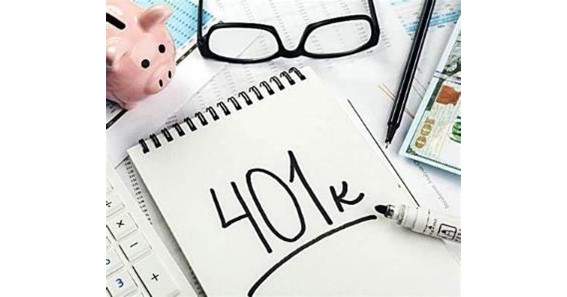The global economy has its own flows. Considering that many factors affect the level of economic activities, they have their upward (economically prosperous) and downward movements (recession). The latter is a major fear of many, especially those who save money in retirement funds like 401(k).
You can find out what a recession is on this link:
https://www.imf.org/external/pubs/ft/fandd/2009/03/pdf/basics.pdf
If you’re investing in retirement plans that you expect will bring you a secure and peaceful future, it’s somewhat logical to be concerned about your money during times of high inflation and generally negative economic trends. In fact, many people wonder if it’s even safe to keep money “trapped” in a 401(k). So they’re usually thinking about withdrawing it.
This is by no means a good decision for several reasons. First, you will face penalties for early withdrawal (up to 10%). Second, money certainly loses value, but while it’s in a 401(k), you earn interest on it that somewhat mitigates that loss. Finally, every recession has an end, so you don’t want to make some bad moves and regret them later.
If you’re worried about the funds in your 401(k), it’s good to be informed about things that can give you extra protection during a crisis.
Keep Contributing
Contributing to your 401(k) is a long-term investment, and it’s certainly not something you’ll pull money from whenever you need it. Anyone who decides to save for old age in this way will face several periods and recessions during their ”investment” life. If you decide to pause contributions every time, it will have much bigger consequences in the long term than the recession itself.
If you’d still decided on this move, you’d face significant losses in compounding earnings. In fact, these losses are almost certainly greater than the potential savings you’d earn if you continue to make 401(k) contributions. The temporary loss is easily overcome thanks to the compounding effect.
So the general advice is not to stop contributing. In that case, you can quickly recover from any short-term loss during the recession. In fact, you can have more money to direct toward some cheaper securities and put them in your portfolio until their prices rise, which will probably happen when the economy starts to recover. That can not only protect you but also increase your funds.
Portfolio Diversification
This is a logical step to protect your wealth, and any seasoned economist will advise you to do it, even with no crisis in sight. Not putting all eggs in a single basket is the best way to mitigate loss because it’s simply impossible for all investment vehicles to become worthless at the same time.
So spread your risk by having some less and more volatile assets in your portfolio. The first ones provide protection, so if you decide on stable assets like precious metals with proven historical value and excellent performance during economic turmoil, your funds will be safe. More volatile investment vehicles might perform well and boost your savings. But even if they don’t, the first ones will balance that out.
You can even have some of your funds into your employer’s stock. It should be no more than 10% of your portfolio, and it’s a wise move if the company you work for has a good track record and good financial shape despite the recession.
Still, although it is good to have them, don’t put too much money in stocks, considering that most securities have a proven low performance in times of crisis. But as said, you can balance that out with about 10 to 15% of your portfolio in gold and other precious metals. See here why these investments are beneficial.
Think of Precious Metal IRA
A 401(k) is just one way to save for old age. If you think you can do more, its contribution limits might seem daunting. Also, this retirement fund has restrictions on how your money is invested, thus preventing you from making a higher profit or additionally protecting your savings.
You can get there by setting up a precious metal IRA. Unlike a 401(k), in this self-directed account, you can hold physical precious metals like bars and coins. It’s tax-free and has nothing to do with your other retirement plans, so you can make extra contributions that will go towards precious metal investments and bring you a nice profit in the long run.
Even in the worst-case scenario, your precious metal IRA will protect you from recession because gold and its peers don’t lose value in times of crisis. Moreover, considering that the demand for precious metals is constantly growing, there’s a greater chance that the prices of these assets will continue to rise. So if you have them now, at some point, you will be at a huge advantage because you’ll be able to sell them at a much higher price.
Don’t Make Hasty Decisions
Recovery comes after every recession, sooner or later. Although there were crisis periods of two, three, or more years each, the global economy always found its way. But not all investors were so lucky. It turned out that some impulsive decisions were disastrous.
Panic-selling all assets from your portfolio that perform poorly in the short term won’t save you from loss. Moreover, it significantly reduces your chances of recovering from it. Once the recovery happens and stocks and bonds regain their value or even increase, you will no longer have them, so you can’t expect earnings.
If a question “how to protect my 401k in a recession“ is on your mind, don’t make hasty selling decisions, even when the loss is almost. Securities in your portfolio provide diversification and a chance for recovery; you just need to be patient and not get rid of ”worthless” assets.
In uncertain times, no one needs additional fear of losing everything they have. That’s why you have to make wise decisions, many of which involve your 401(k). Don’t give up on it and assets that have temporarily lost their value. These can be your wild card for going through the crisis as painlessly as possible.
Click Here – 10 Unique Careers To Consider






